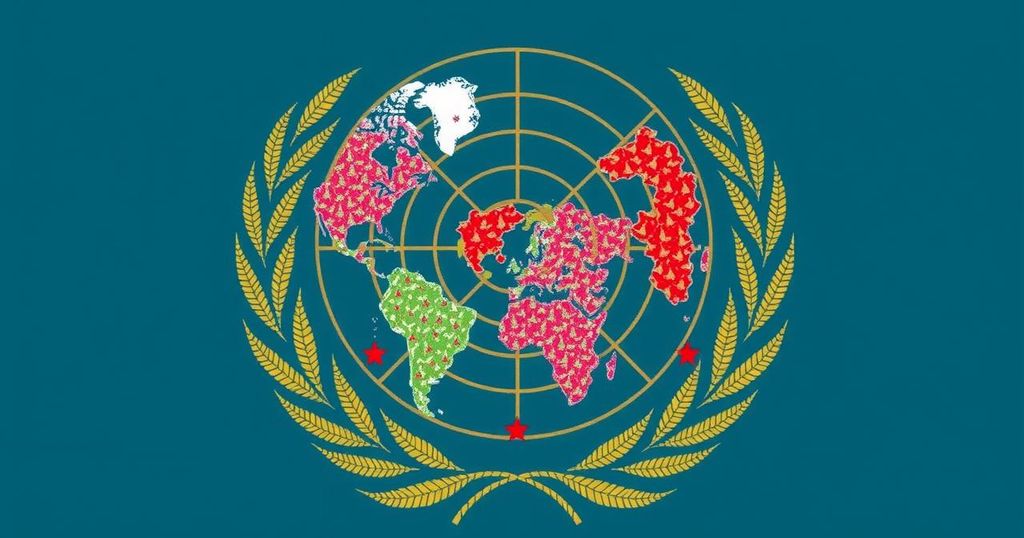During the UN climate summit in Baku, developing nations condemned a pledged $300 billion in annual climate funds from wealthy nations as grossly inadequate. This financial commitment, while raised from previous levels, falls short of the $500 billion demanded by poorer countries coping with severe climate impacts. Many view the deal as lacking in ambition and failing to truly address the climate crisis.
At the recent UN climate summit held in Baku, Azerbaijan, developing nations expressed vehement criticism over a climate finance agreement obligating wealthier countries to provide at least $300 billion annually by 2035. The deal, narrowly negotiated over two weeks, was perceived by many poorer nations as woefully inadequate amid escalating climate crises. India’s representative Chandni Raina labeled the financial commitment as “paltry,” asserting that it fails to adequately address the immense challenges posed by climate change. Similarly, Sierra Leone’s Jiwoh Abdulai and Tina Stege from the Marshall Islands voiced significant disappointment, noting the insufficient nature of the agreement compared to the pressing needs of vulnerable countries.
The agreement, which came about following intense negotiations, attempts to address the long-standing disparity between historically polluting developed nations and those in the developing world most affected by climate change. Many developing countries had initially sought a target of $500 billion, highlighting the gap between expectations and the final figure. UN climate chief Simon Stiell acknowledged the imperfections inherent in the deal, noting that no nation achieved all its goals.
Despite the initial exuberance surrounding the compact, the response from developing countries was overwhelmingly disheartened. The EU’s climate envoy described the conference as the start of a new era for climate finance, yet critiques from activists such as Mohamed Adow, who declared the outcome a “betrayal” of climate commitments, underscore the deep-seated dissatisfaction with the agreement’s outcomes. The overarching goal remains set at $1.3 trillion per year to combat climate impacts, with a significant portion sought from private investments.
The climate finance conversation emerges from an urgent need for wealthier nations to recognize and compensate for their historical roles in climate change. Developing countries often bear the brunt of climate-related disasters despite contributing minimally to the problem. The establishment of a $300 billion annual fund, although an increase from previous commitments, reflects ongoing tensions about equitable funding and support for the most vulnerable nations. Both historical and contemporary dynamics illustrate the challenges of securing sufficient funding to adequately support necessary climate adaptation and mitigation efforts.
In summary, the UN climate summit’s resulted agreement, while representing a step forward with the pledge of $300 billion annually, has been met with significant backlash from developing nations. Disappointment reigns as many view the amount as insufficient to address the realities of escalating climate disasters. With criticisms highlighting a betrayal of trust and inadequate support, the need for more robust financial commitments from developed nations remains a pressing concern moving forward, particularly as global temperatures rise unabated.
Original Source: www.france24.com






